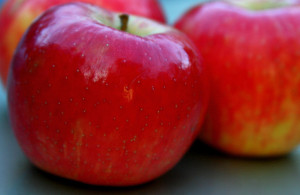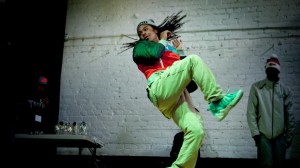Welcome to Wordnik’s Word Buzz Wednesday, a new weekly series in which we take a look at five buzzworthy words in the news, whether neologisms, words we’ve just learned, or common words made significant.
Have a tip for a buzzworthy word? Let us know in the comments!
club apple
“An increasing number of these new apples are ‘club apples’ — varieties that are not just patented, but also trademarked and controlled in such a way that only a select ‘club’ of farmers can sell them.”
Dan Charles, “Want To Grow These Apples? You’ll Have To Join The Club,” NPR, November 10, 2014
Club apple varieties include the Autumn Glory, the Envy, and the SweeTango. Non-club or unpatented varieties include the Fuji, the Gala, and, our current favorite, the Honeycrisp.
[H/t Marilyn Terrell]
lumbersexual
“He looks like a man of the woods, but works at The Nerdery, programming for a healthy salary and benefits. His backpack carries a MacBook Air, but looks like it should carry a lumberjack’s axe. He is the Lumbersexual.”
Tom Puzak, “The Rise of the ‘Lumbersexual,’” Gear Junkie, October 30, 2014
Think Paul Bunyan, only more hipstery (and less giant). Lumbersexual is a play on metrosexual, “a man concerned with personal appearance, such as personal grooming, fashion, and aesthetics in general.”
Omega Block
“The highly elongated jet stream, whose circuitous route right now bends from Siberia down toward Hawaii back to the Arctic north of Alaska and then straight south toward the Midwest and East Coast, is morphing into an ‘Omega Block,’ named after the Greek letter of a similar shape.”
Eric Holthaus, “Meet the ‘Omega Block,’ Your Wintry Companion for (At Least) the Next Two Weeks,” Slate, November 10, 2014
In addition to being a good name for a heavy metal band, the Omega Block is “semi-stable,” unlike the polar vortex, says Holthaus. Because of that, it’s “somewhat difficult to know how long it’s going to last,” which “means it can also unleash multiple waves of wintry goodness before gradually fizzling out.”
Singles Day
“In 2009, the e-commerce site Alibaba (which is kind of like China’s Amazon.com) decided to mark Singles’ Day with a massive sales event. Half a decade later, it’s estimated to be the world’s biggest shopping day, bringing in $9.3 billion in sales this year.”
Marty Beckerman, “It’s ‘Singles’ Day’ In China, A Shopping Extravaganza With Occasional Nudity,” MTV News, November 11, 2014
Singles Day is a kind of anti-Valentine’s Day in China. It occurs on November 11, or 11/11 because “one is the loneliest number,” as MTV News says, and in Mandarin is known as Guanggun Jie. Guanggun translates literally as “bare stick” and is a colloquial term for “bachelor.”
The holiday began at Nanjing University in 1993 originally for single men but now is celebrated by both genders. A single woman over a certain age is sometimes called a sheng nu, or “leftover woman.”
Singles Day traditions include singing karaoke, eating you tiao, a deep-fried dough stick, and, apparently, buying lots of things online (see Cyber Monday).
Photo via OZY.com
turfing
“It’s called turfing, and it’s really all about a quirky reenactment of everyday life. . . .Shooting hoops, lighting a cigarette, even yawning are all fair game. Combine that with the foundational moves of popping, hand tutting, gliding and some fancy footwork — and you’ve got turf dancing.”
Leslie Nguyen-Okwu, “Oakland’s Hella Cool Dance Craze,” OZY, November 10, 2014
Turfing, or turf dancing, began in Oakland, California in the 1990s. Dancer Jeriel Bey is credited with coining the term, which is an acronym for Taking Up Room on the Floor.
[Photo: “Apples,” CC BY 2.0 by liz west]

